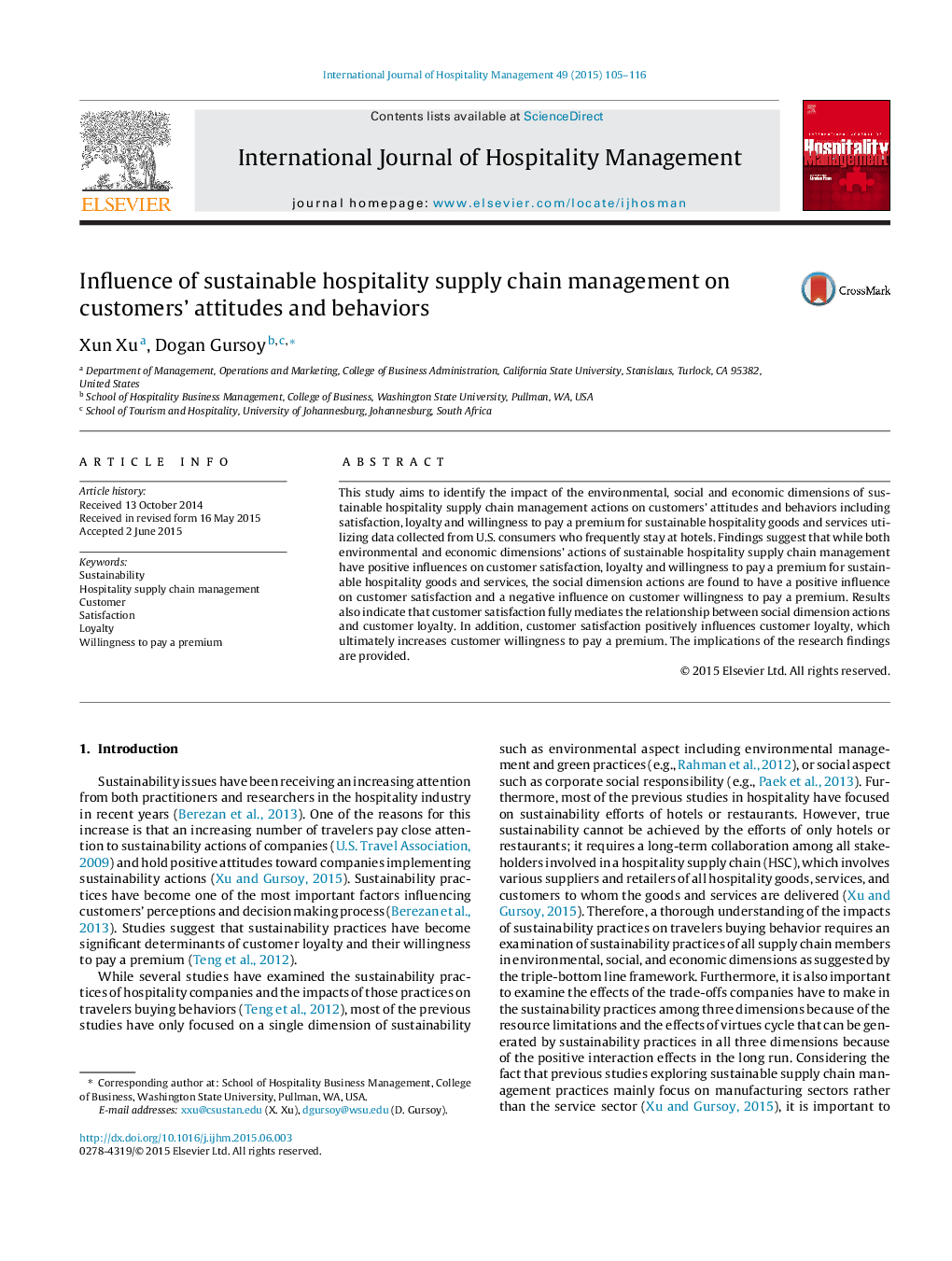| کد مقاله | کد نشریه | سال انتشار | مقاله انگلیسی | نسخه تمام متن |
|---|---|---|---|---|
| 1009292 | 1482488 | 2015 | 12 صفحه PDF | دانلود رایگان |
کلمات کلیدی
1.مقدمه
2.مروری بر ادبیات
2.1 مدیریت زنجیره تامین در صنعت هتل داری و مهمان نوازی
2.2 مدیریت زنجیره تامین پایدار در صنعت هتل داری و مهمان نوازی
3. چارچوب پژوهش و توسعه ی فرضیات
3.1 تاثیر مدیریت زنجیره تامین پایدار صنعت هتل داری و مهمان نوازی بر رضایت مشتری
3.2تاثیر مدیریت زنجیره تامین پایدار مهمان نوازی بر وفاداری مشتری
3.3 تاثیر مدیریت زنجیره تامین پایدار هتل داری و مهمان نوازی بر تمایل مشتریان به پرداخت وجه
3.4تاثیر رضایت مشتری بر وفاداری مشتری
3.5تاثیر وفاداری مشتری بر تمایل مشتری جهت پرداخت وجه بیشتر
4.روش ها
4.1معیارها
4.2جمع آوری داده و نمونه
4.3تجزیه و تحلیل داده ها
5.نتایج
5.1ویژگی پاسخ دهندگان
5.2مدل ارزیابی
جدول1. ویژگی های پاسخ دهندگان
جدول2. ویژگی های مدل ارزیابی.
تصویر1.مدل ساختاری با ضرایب استاندارد.
5.3مدل ساختاری و فرضیات
6.بحث
جدول3. خلاصه ای از فرضیات و ضرایب مسیر.
7.پیامدها
7.1پیامدهای نظری
7.2 پیامدهای مدیریتی
8. نتیجه گیری
This study aims to identify the impact of the environmental, social and economic dimensions of sustainable hospitality supply chain management actions on customers’ attitudes and behaviors including satisfaction, loyalty and willingness to pay a premium for sustainable hospitality goods and services utilizing data collected from U.S. consumers who frequently stay at hotels. Findings suggest that while both environmental and economic dimensions’ actions of sustainable hospitality supply chain management have positive influences on customer satisfaction, loyalty and willingness to pay a premium for sustainable hospitality goods and services, the social dimension actions are found to have a positive influence on customer satisfaction and a negative influence on customer willingness to pay a premium. Results also indicate that customer satisfaction fully mediates the relationship between social dimension actions and customer loyalty. In addition, customer satisfaction positively influences customer loyalty, which ultimately increases customer willingness to pay a premium. The implications of the research findings are provided.
Journal: International Journal of Hospitality Management - Volume 49, August 2015, Pages 105–116
